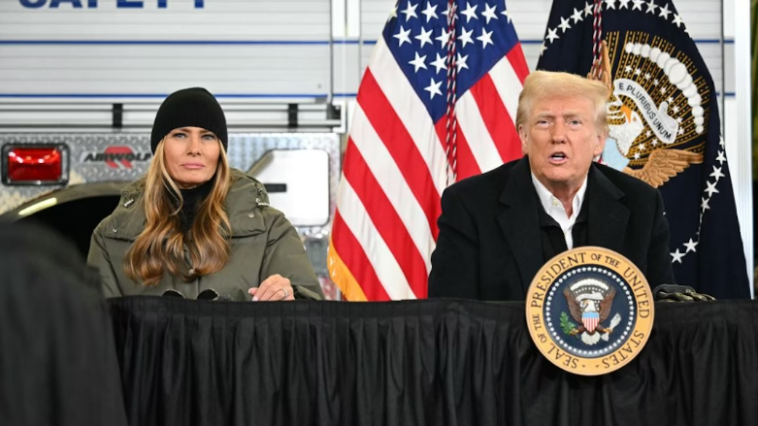During a recent visit to North Carolina, President Donald Trump addressed reports that certain Federal Emergency Management Agency (FEMA) employees allegedly bypassed homes displaying pro-Trump signs during disaster relief efforts. He described these actions as “not nice” and emphasized the need for impartiality in federal assistance.
Background of the Allegations
In November 2024, reports emerged that FEMA supervisor Marn’i Washington had instructed relief workers in Lake Placid, Florida, to “avoid homes advertising Trump.” This directive led to at least 20 homes being overlooked during Hurricane Milton recovery operations. Following these revelations, Washington was terminated from her position, and FEMA Administrator Deanne Criswell labeled the incident as “reprehensible,” asserting that it was an isolated case.
Legal Actions and Investigations
The state of Florida has initiated legal action against FEMA and Washington, alleging a conspiracy to discriminate against Trump supporters. Additionally, the Department of Homeland Security’s inspector general has launched an investigation into multiple allegations of misconduct by FEMA personnel in Florida and other states.
President Trump’s Response and Proposed Reforms
In light of these events, President Trump has proposed significant reforms to FEMA, suggesting a potential overhaul or even dismantling of the agency. He advocates for shifting more disaster relief responsibilities to state governments, expressing dissatisfaction with FEMA’s performance. “FEMA has really let us down. Let the country down,” he stated during his North Carolina visit. “We’re going to fix it, and we’re going to fix it as fast as you can.”
Implications for Disaster Relief Management
The President’s remarks and proposed changes have sparked discussions about the future structure of disaster relief in the United States. While some support increased state control, others raise concerns about the potential challenges states may face without federal support. The situation underscores the importance of ensuring that disaster relief efforts remain impartial and effective, serving all citizens regardless of political affiliation.


